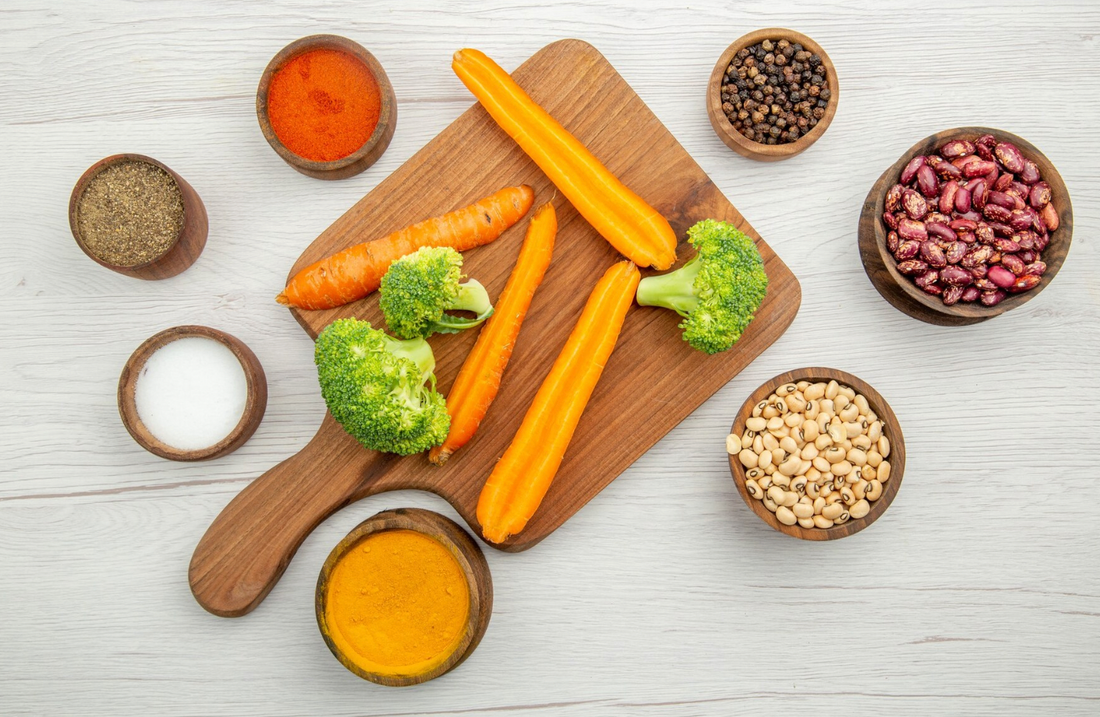Fibre is one of the most important food groups you should eat daily. However, many of us, including kids, often do not consume the recommended fibre daily. In the age of fast food and packaged food, we are always looking for protein or something that can fill you up quickly. But in reality, the roughage in food, or the fibre in food facilitates digestion and helps to maintain gut health. Let us look at some of the sources of roughage that you can add to your daily diet for healthy gut health.
What is Roughage
Roughage, or fibre in food is a type of carbohydrate that your body cannot digest. However, it is essential for keeping the digestive system functioning properly. Fiber in food helps in regular bowel movements. Additionally, roughage in food prevents constipation and promotes a healthy gut microbiome.
Benefits of High-Fiber Foods
- fibre gives your stool more volume
- fibre eases the strain during bowel movements and softens stool
- It encourages a feeling of fullness and reduces overeating
- foods high in fibre help in weight management
- help regulate blood sugar levels
Sources of Roughage
Let us look at the top 9 sources of roughage that can help improve your digestive health
#1 Whole Grains
Whole grains like oats, quinoa, barley or brown rice are excellent sources of roughage or dietary fibres. They offer several health advantages because they contain both soluble and insoluble fibre. Whole grains lower the chance of constipation and help control bowel movements.
#2 Lentils & Beans
Legumes and beans are rich in fibre and an excellent source of plant-based proteins. Including beans and legumes in your diet can help you maintain weight control and encourage a healthy digestive system. Try lentils like
- Masoor dal
- Moong dal
- Toor dal
- Urad dal
- Beans (black, kidney, etc.)
- Chickpeas
- Peas
#3 Brocolli
Among all the cruciferous vegetables, broccoli has a high fibre content. Apart from being a fantastic source of roughage, it helps in digestive health because it is also high in vitamins, minerals, and antioxidants. Broccoli can support gut health and help with digestion.
#4 Berries
Berries are full of antioxidants and dietary fibres. You can enjoy them in their season and reap the benefits of their fibre content. Try making yogurt berry smoothies with honey for best results. You can take berries like,
- Strawberry
- Blackberry
- Blueberry
- Raspberry
- Gooseberry
#5 Avocado
Toast, salads, entrees, and eggs all pair well with avocados. Although they are known for their high content of heart-healthy fats, a single cup of sliced avocado contains 9.78 grams of fibre. So next time you want to enjoy guacamole, don’t think twice! Avocados are a great source of roughage and a low-carb, high-fibre meal.
#6 Fruits
We often underestimate the benefits of including fresh fruits in our diet. They are not only powerhouses of necessary vitamins and minerals, but they also provide the required amount of roughage. Try the following food for dietary fibres.
- Apple
- Pear
- Orange
- Grapefruit
- Banana
- Guava
- Kiwi
- Passionfruit
- Figs
- Pomegranate
#7 Sweet Potato
In addition to being delicious, sweet potatoes are an excellent source of roughage or dietary fibre. Sweet potato fibre supports a healthy gut microbiome, eases constipation, and helps to regulate bowel movements. Sweet potatoes make a healthy and adaptable addition to any diet, whether they are baked, roasted, or mashed.
#8 Nuts
No wonder snacking on nuts is a great way to keep yourself food and get the required dietary fibre. Nuts can be added to salads, yogurt, and cereal. They make a wholesome snack as well. Nuts are often high in fat and calories, so be sure to stick to smaller portion sizes.
You can try nuts like
- Almonds
- Walnuts
- Chia seeds
- Flaxseeds
- Pumpkin seeds
#9 Vegetables
Vegetables are another excellent source of fibre along with essential minerals and vitamins. You can try incorporating the following vegetables into your diet.
- Leafy greens (spinach, kale, romaine lettuce)
- Cruciferous vegetables (broccoli, cauliflower, Brussels sprouts)
- Root vegetables (carrots, sweet potatoes)
- Bell peppers
- Cucumbers
How to Incorporate High-Fiber Foods into Your Diet
Here are some tips on how to incorporate sources of roughage into your diet.
- Start slowly: Give your body time to adjust by gradually increasing your intake of fibre.
- Select whole foods: Rather than processed foods, choose whole grains, fruits, vegetables, legumes, and nuts.
- Keep yourself hydrated: To avoid constipation, make sure you're getting enough water.
Conclusion
Now that you know the sources of roughage you know how to get your bowel movement regulated. Foods high in fibre help your digestive system and general health. To prevent stomach discomfort, don't forget to drink lots of water and gradually increase your intake of fibre.
What’s Up Wellness has brought you gut health gummies that are a convenient way to ensure you are getting the required amount of dietary fibre. Made with probiotics and pre-biotics, these probiotic gummies are for anyone who has indigestion issues and is troubled by constipation.































